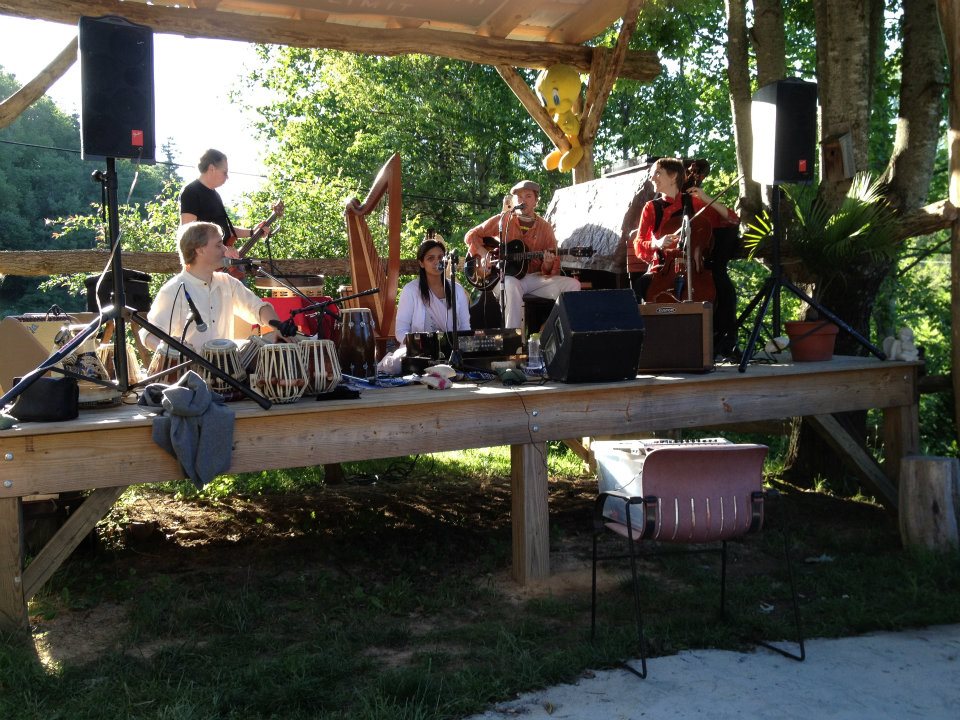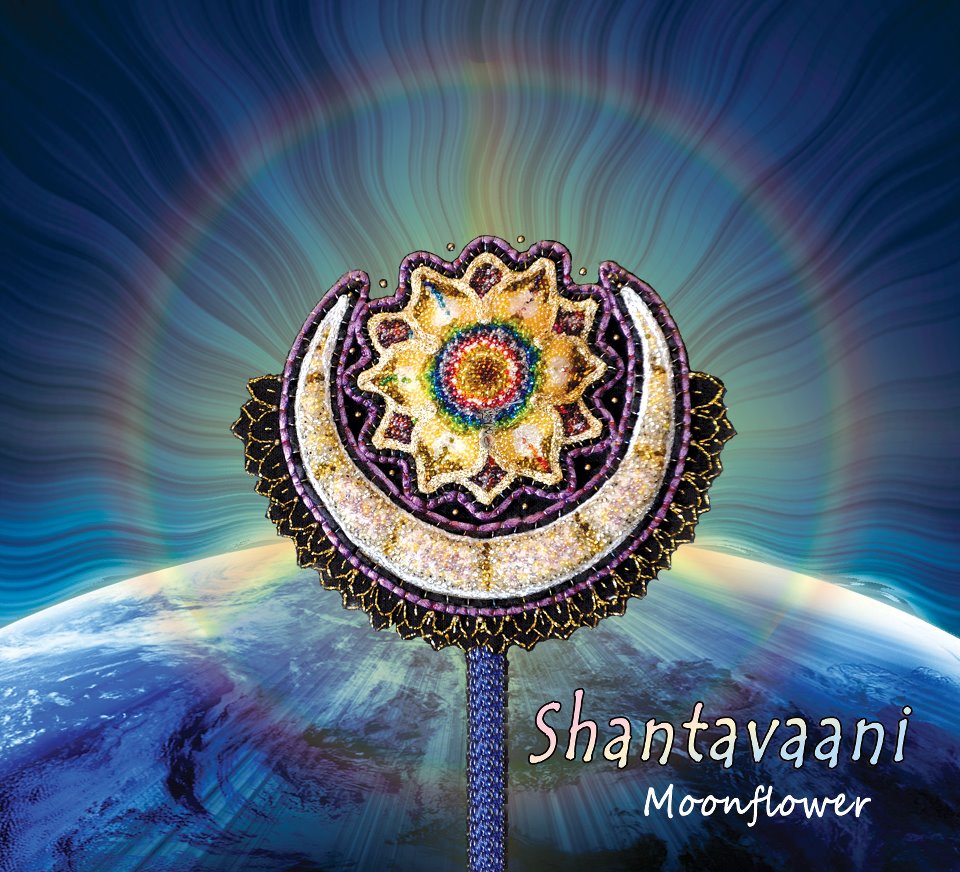“Ban Morni,” the first track off Shantavaani‘s sprawling, two-disc album, Moonflower, leaps from the speakers, all snapping percussion and jogging rāgas. And even with the Punjabi lyrics, the song is quickly contagious. Dancey, even.
Which is not to suggest that what the local world music collective has created is a club record — Moonflower is spiritual and meditative, borrowing most of its songs from ancient Asian songbooks (including folksongs and gazals from India and Pakistan). But the faster-paced offerings, if remixed and set to dance beats, would be right at home in the dancehall.The intention of the album is made clear by its excellent musicianship (harmonium, cello and tabla are performed with artful precision) and soulful lyrics. And, mixed in with the worldbeat offerings, are contemporary folk numbers by singer-songwriter Jay Brown.
“Soul To Soul” is one of Brown’s originals, a swaying, harmonica-tinged soft-rocker. His voice is a burnished tenor, his lyrics a guitar-and-campfire poetry promoting peace and togetherness. Indeed, Brown’s songs are well-crafted and make sense within the spirit of sincerity and collaboration that is Shantavaani. But the English-language lyrics and cozy folk guitar feels at times, if not exactly jarring, then veering from the exotic flavor of the rest of the album.
Still, this is an album with far more high points than stumbles (and its stumbles are small). One stand out on Moonflower‘s first disc is the thrumming, melodic “Maa.” The song comes from the film Nela Meeda Thaaralu, and its sweetly sung verses and warm tonality convey its emotion (the translation — graciously included in the liner notes — is actually kind of sad).

Disc one ends with Brown’s 10-minute “Aditi,” a gorgeously-composed instrumental that succinctly sums up the connection and intersection of Brown’s folk songs and Shantavaani’s world music covers. The cello, played by Sarah Moor, is especially poignant.
The second disc launches with a group “Om” from the band’s members — good for meditators and possibly awkward for listeners not seeking a spiritual experience from the record. But the “Om” sets the stage for the low and slow intro of the Sikh shabad “Kaireea Tundha.” Here again, sweeping strings artfully convey exquisite emotionalism, as delicate and awe-inspiring as a sunset or snowfall. This is a song to get lost in.
“Aaj Kal” is a velvety lullaby — this is apparent from the lovely vocal, the soft, organic percussion and the gentle sway, though the English translation confirms what the music imparts. “Payoji Maine” (“A Hindu devotional chant by the 16th century saint Meera Bai,” reads the liner notes) amps up the energy. The male and female vocal duet is underscored by bright bells and what sounds like a harmonium solo run through an effects pedal.
“Bulla,” take from a 17th century poem, is set to music that, at the start, sounds like a jangly indie-rock tune. The warble of tabla and a rich and moody cello take the song in a different direction, but it still feels modern and fresh. On the other hand, the Brent Dowe and Trevor McNaughton chestnut “By the Rivers of Babylon” is Bolly Wooded out. The reggae tune (well known from the ‘72 film The Harder They Come) rests, here, on a foundation of Eastern percussion and is sung march-like, on the beat. While it’s a cheerful and buoyant rendition, it’s hard not to long, just a little bit, for the hip-dipping behind-the-beat familiarity of the Boney M version.
The album wraps with two different but equally sweet tracks. Brown’s “Moonflower” was inspired by “some of Hope Ryan’s last words,” according to liner notes. Final song “Everyone In The World” is based on the acceptance speech of living Indian saint Amma, who was presented with the Gandhi-King Award for Non-violence in 2002. “Love is the answer,” is the refrain — a message that Shantavaani gently offers throughout this moving and masterful 20-song collection.



Before you comment
The comments section is here to provide a platform for civil dialogue on the issues we face together as a local community. Xpress is committed to offering this platform for all voices, but when the tone of the discussion gets nasty or strays off topic, we believe many people choose not to participate. Xpress editors are determined to moderate comments to ensure a constructive interchange is maintained. All comments judged not to be in keeping with the spirit of civil discourse will be removed and repeat violators will be banned. See here for our terms of service. Thank you for being part of this effort to promote respectful discussion.